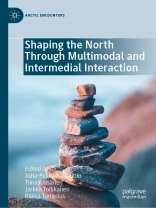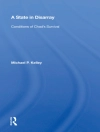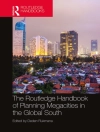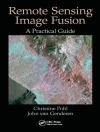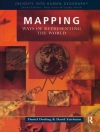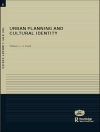This book emphasizes humans interacting and participating in making meaning with multimodal resources and relating experience via intermedial means. The contributors explore diverse ways of mediating work, education, arts, and culture, and ask how interactive participation involves experiences of the north either as a physical setting or a more abstract cultural condition that shapes the activity. The ten chapters engage with topical theoretical debate and put novel methodology to test, providing essential reading for scholars and students in this rich and rapidly developing global field of research.
قائمة المحتويات
1 Introduction: multimodality and intermediality in the north. By Juha-Pekka Alarauhio, Tiina Räisänen, Jarkko Toikkanen, & Riikka Tumelius.- Part-1.
Mediating Work and Education.- 2. A design-driven approach to language teacher education in the era of digitalization. By Riikka Tumelius, Leena Kuure, & Maritta Riekki.- 3. Bad news delivery as an interactional context for constructing professional identities and social relations: multimodal approach. By Tiina Räisänen & Tuire Oittinen.- 4. Multimodal negotiation for the right to access digital devices among elderly users and teachers. By Joonas Råman.- 5. Zooming in on a frame: collectively focusing on a co-participant’s person or surroundings in video-mediated interaction. By Mari Holmström, Mirka Rauniomaa, & Maarit Siromaa.- Part-2.
Mediating Arts and Culture.- 6. Voicing a Northern minority culture on a global and digital arena: Sami music videos on You Tube. By Annbritt Palo, Lena Manderstedt, & Outi Toropainen.- 7. Global participation in the North – Exploring the issues of silent participation and building a zone of identification in a hostile digital environment. By Matti Nikkilä.- 8. Light and darkness: Transmediality in recent self-identification and construction of the Finnish North. By Katja-Maria Miettunen & Jussi Jalonen.- 9. Transmediality and Multimodality in the Artistic Work of Nils-Aslak Valkeapää. By Kuisma Korhonen & Veli-Pekka Lehtola.- 10. Imaginations in the north: cross-modal communication in Johan Ludvig Runeberg’s
The Moose Hunters and Matthew Arnold’s
Balder Dead. By Juha-Pekka Alarauhio.- 11. Endless North: Intermedial experience of motion and balance in H. P. Lovecraft’s
The Dream-Quest of Unknown Kadath. By Jarkko Toikkanen.
عن المؤلف
Juha-Pekka Alarauhio is a lecturer in English at the University of Oulu. His research interests are in literary traditions, literary imitation and adaptation, and the depiction of sensory experience in literature. Building on his earlier work with Matthew Arnold’s epic poetry, Alarauhio is currently developing an updated, communicative approach to literary genre, using epic narratives from various periods as target texts for his case studies. In accordance with his interests in both linguistics and literature, Alarauhio has published in journals and book series such as the Nordic Journal of English Studies and John Benjamins’ FILLM Studies in Languages and Literatures.
Tiina Räisänen works as a Senior Lecturer in English unit at the University of Oulu. Her
research focuses on professional discourse and communication in various working life contexts, particularly in multilingual, lingua franca and multimodal environments, as well as professionals as language learners and global knowledge workers. Räisänen’s longitudinal research
project Professional communicative repertoires was funded by the Academy of Finland in 2016-
2019. She has published in peer-reviewed international journals, such as IEEE Transactions on Professional Communication, International Journal of Applied Linguistics, European Journal of International Management, and co-edited Dangerous multilingualism: Northern perspectives on order, purity and normality
Jarkko Toikkanen is Senior Lecturer in English at the University of Oulu, Finland, and Adjunct
Professor at Tampere University, Finland. His research is focused on the concept of intermedial
experience, or how experiencing literature and other media produces sensory perceptions, both
imagined and non-imagined, through medium-specific ways of presenting thatmediate the
conceptual abstractions of language and culture. This three-tier model of mediality is a work in
progress. Toikkanen has published articles, among others, on paranormal reality television,
Wordsworth, and Poe, the monograph The Intermedial Experience of Horror: Suspended
Failures (Palgrave Macmillan, 2013), and two co-edited anthologies including The Grotesque
and the Unnatural (Cambria Press, 2011).
Riikka Tumelius is a doctoral researcher at the University of Oulu. She is interested in the complexity of multimodal interaction in language learning, language teacher education and language pedagogies in the light of our technologically changing everyday life, which stems from her background as a foreign language teacher. Tumelius applies nexus analytical
methodologies in her research. She has published nationally and internationally. Recently
Tumelius has worked as a principal lecturer in Interpreting and Linguistic Accessibility at the Humak University of Applied Sciences, and as a university teacher in English Philology and in Foreign Language Didactics at the University of Oulu.
